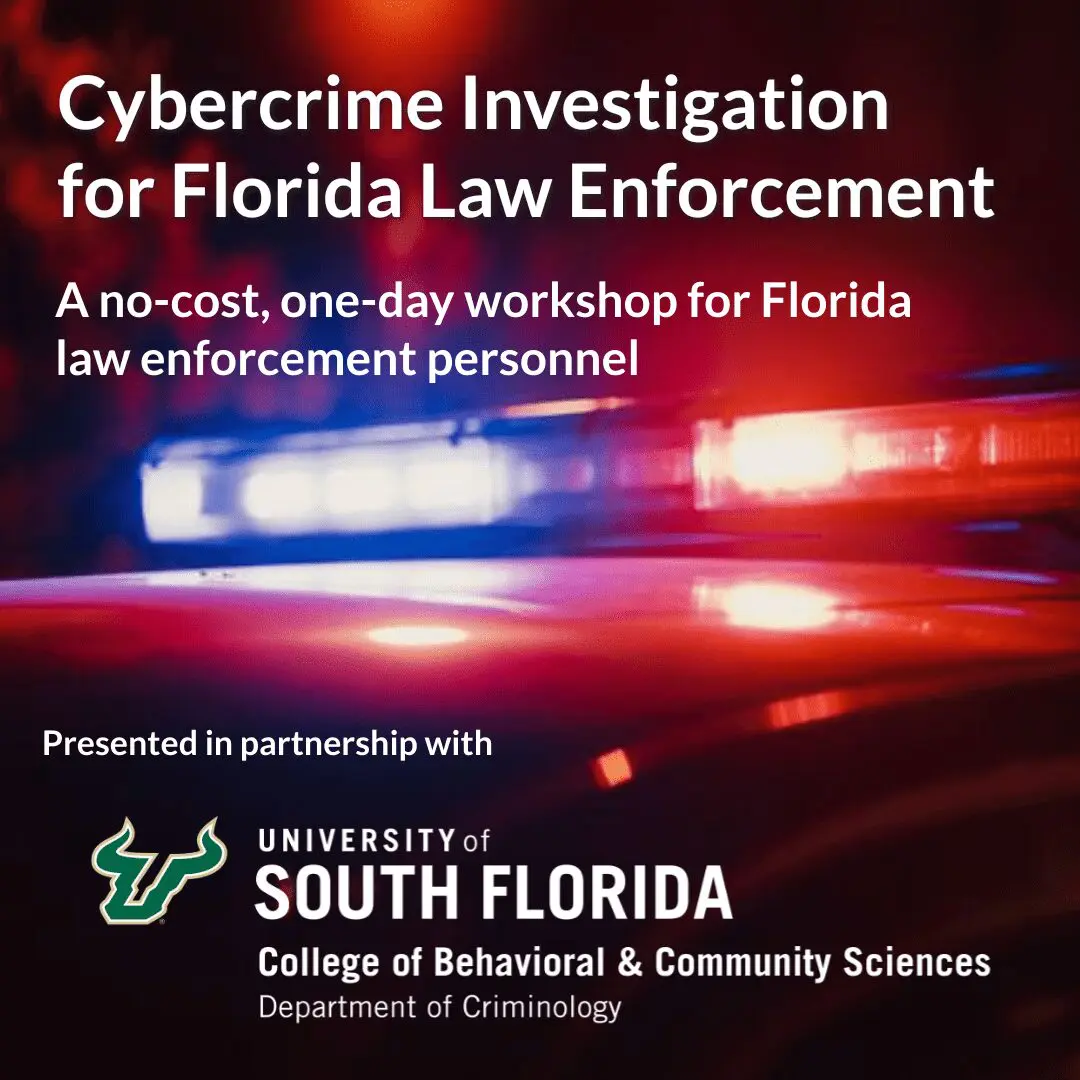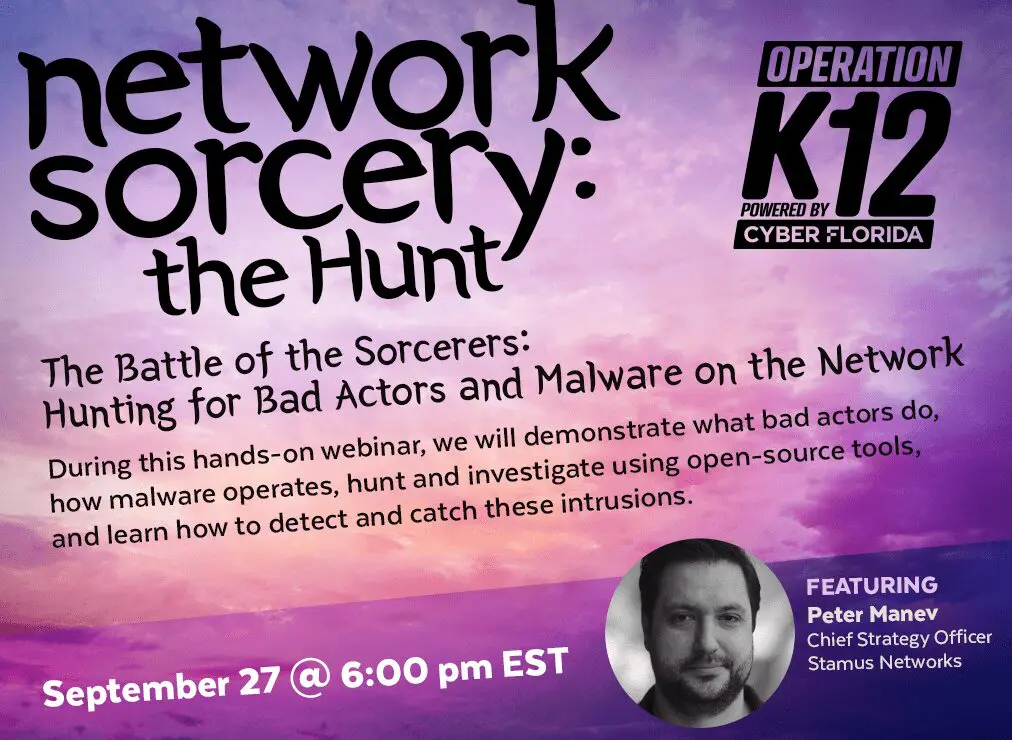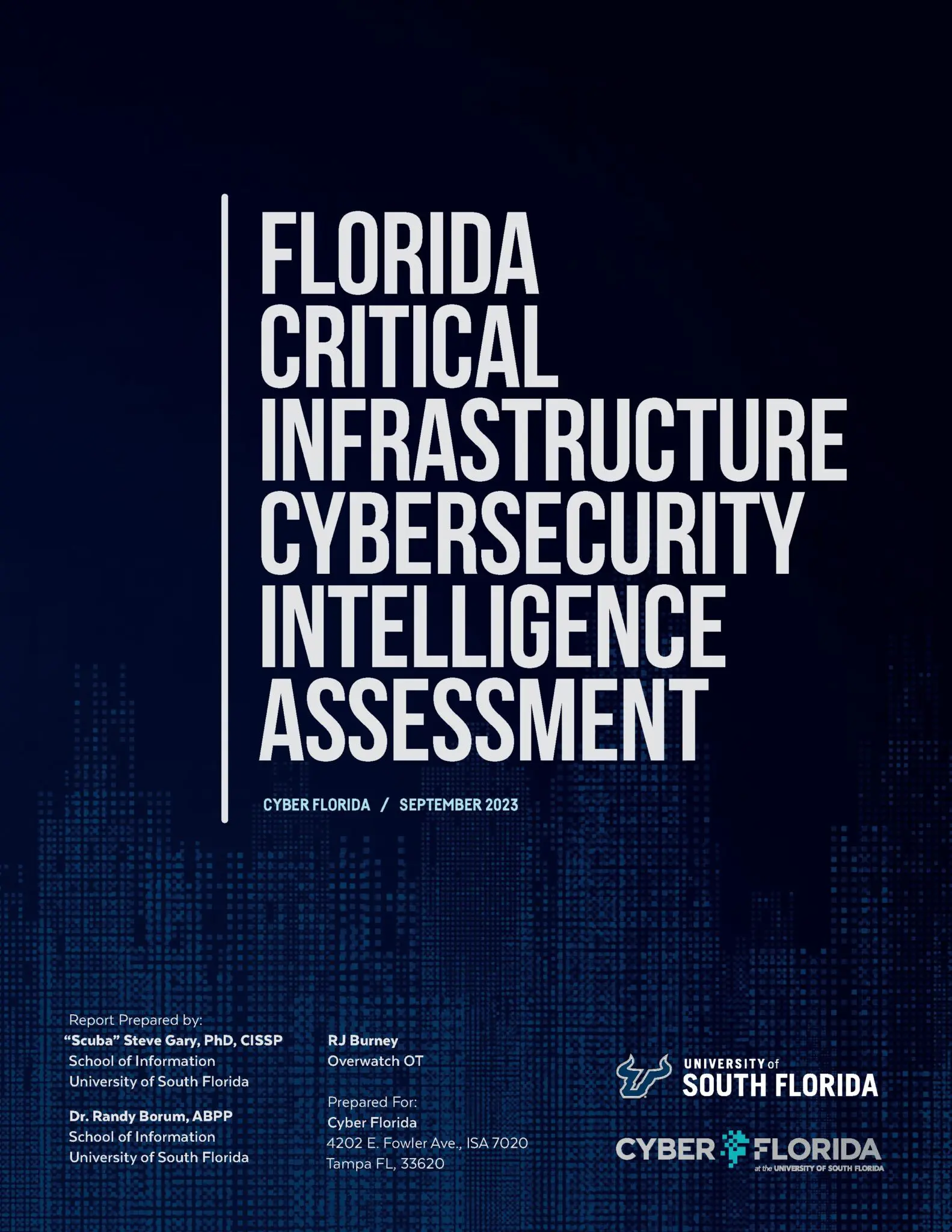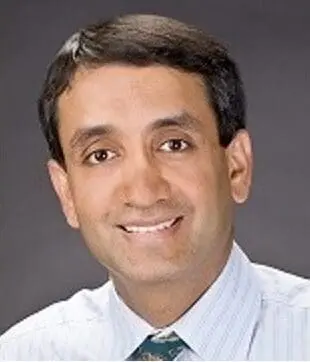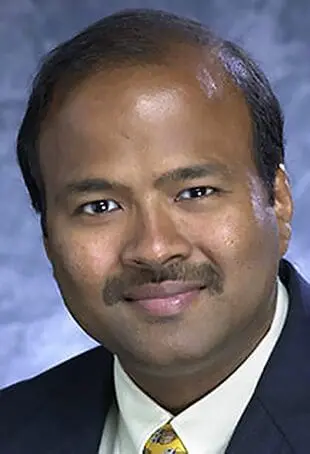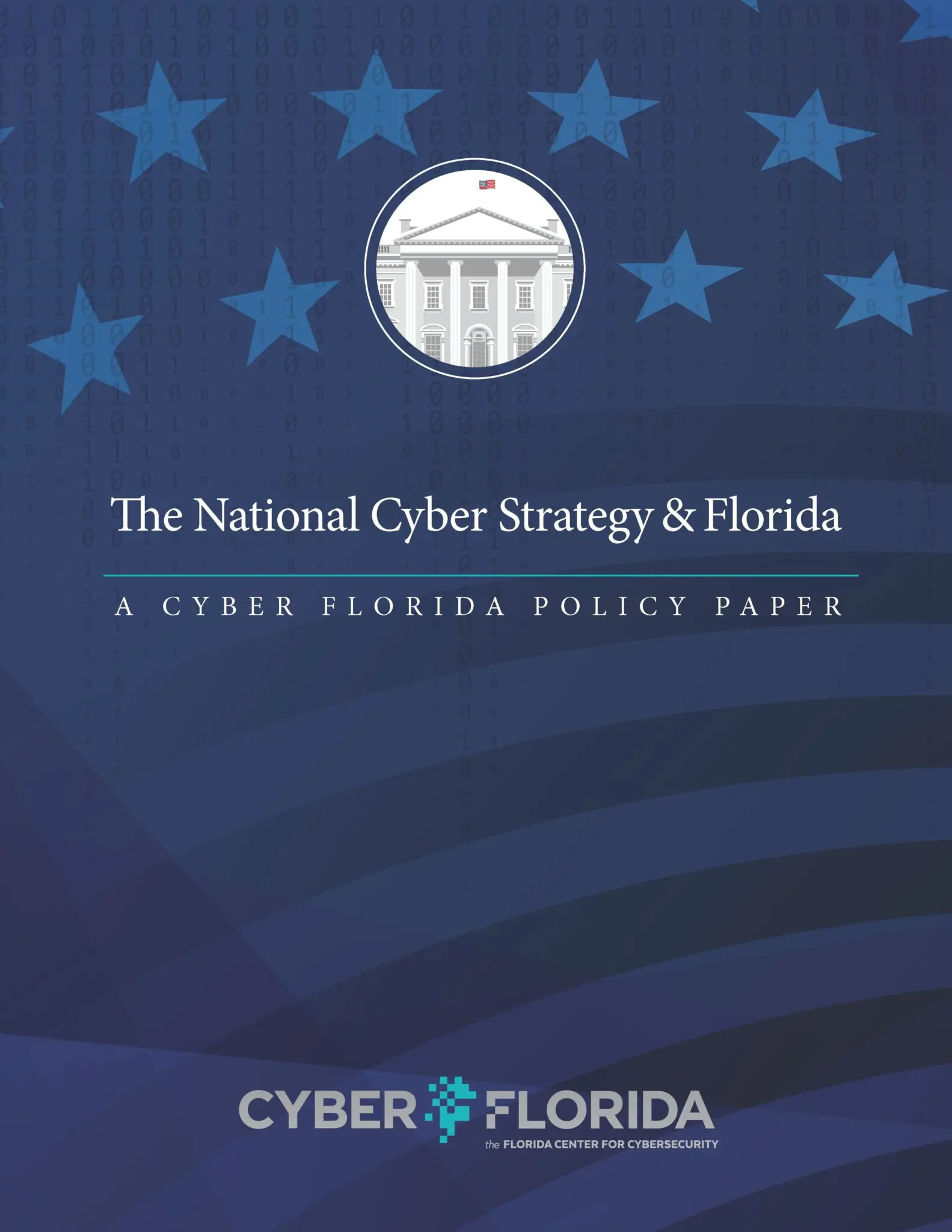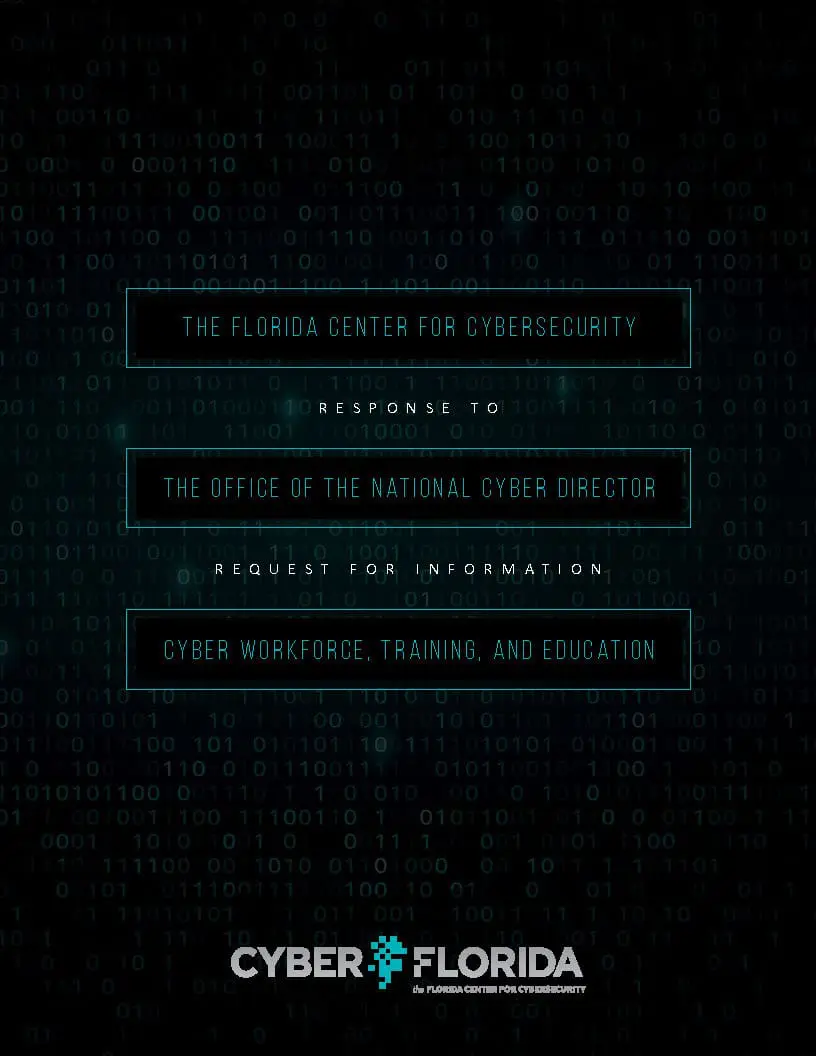Cybercrime Investigation for Florida Law Enforcement
Cyber Florida invites state and local law enforcement personnel across the Sunshine State to attend this free, one-day workshop presenting the latest insights, methodologies, and updates related to cybercrime. Funded by a grant from the Federal Emergency Management Agency, this event offers an impressive lineup of experts in various domains of cyber investigations, providing a valuable knowledge-sharing platform for officers and officials keen on enhancing their investigative capabilities in an increasingly digital world.
Program Agenda
9:00 - 10:00 am: Open Source Intelligence (OSINT)
Dr. Jordan Howell dives into the world of publicly available data and how it can be harnessed to aid in cyber investigations. Dr. Howell will discuss key tools, techniques, and resources available in the realm of OSINT.
10:15 - 11:15 am: Cybercrime Legal Update
Assistant U.S. Attorney Greg Schiller will provide attendees with the latest updates in the legal landscape surrounding cybercrime, providing a clearer picture of the challenges and opportunities facing law enforcement.
11:45 am - 12:45 pm: Current Forensics Challenges
In this session, veteran criminal investigator Chris Gastardi will address the ongoing challenges forensic experts face in digital investigations and cutting-edge techniques to overcome them.
12:45 - 1:45 pm: Networking Lunch (lunch provided, value less than $50)
1:45 - 2:45 pm: Cryptocurrency Investigations and the Blockchain
Cryptocurrencies present unique challenges in the world of cyber investigations. Larry Nielson, CFE, CTCE, CRC, Financial Crimes Detective at the Palm Beach County Sheriff’s Office, will delve deep into the world of blockchain and shed light on techniques to trace, track, and investigate cryptocurrency-related crimes.
3:00 - 3:45 pm: Dark Web Investigations
The Dark Web remains a mystery to many. Jeff Burke, special agent with the Defense Criminal Investigative Service, will uncover the layers of the Dark Web, providing insights into how to navigate, investigate, and track criminal activities on this hidden part of the internet.
4:00 - 5:00 pm: Cyber Investigations
Retired FBI Supervisory Special Agent Chuck Esposito gives a comprehensive look into the realm of cyber investigations, discussing everything from current threats to mitigation strategies.

